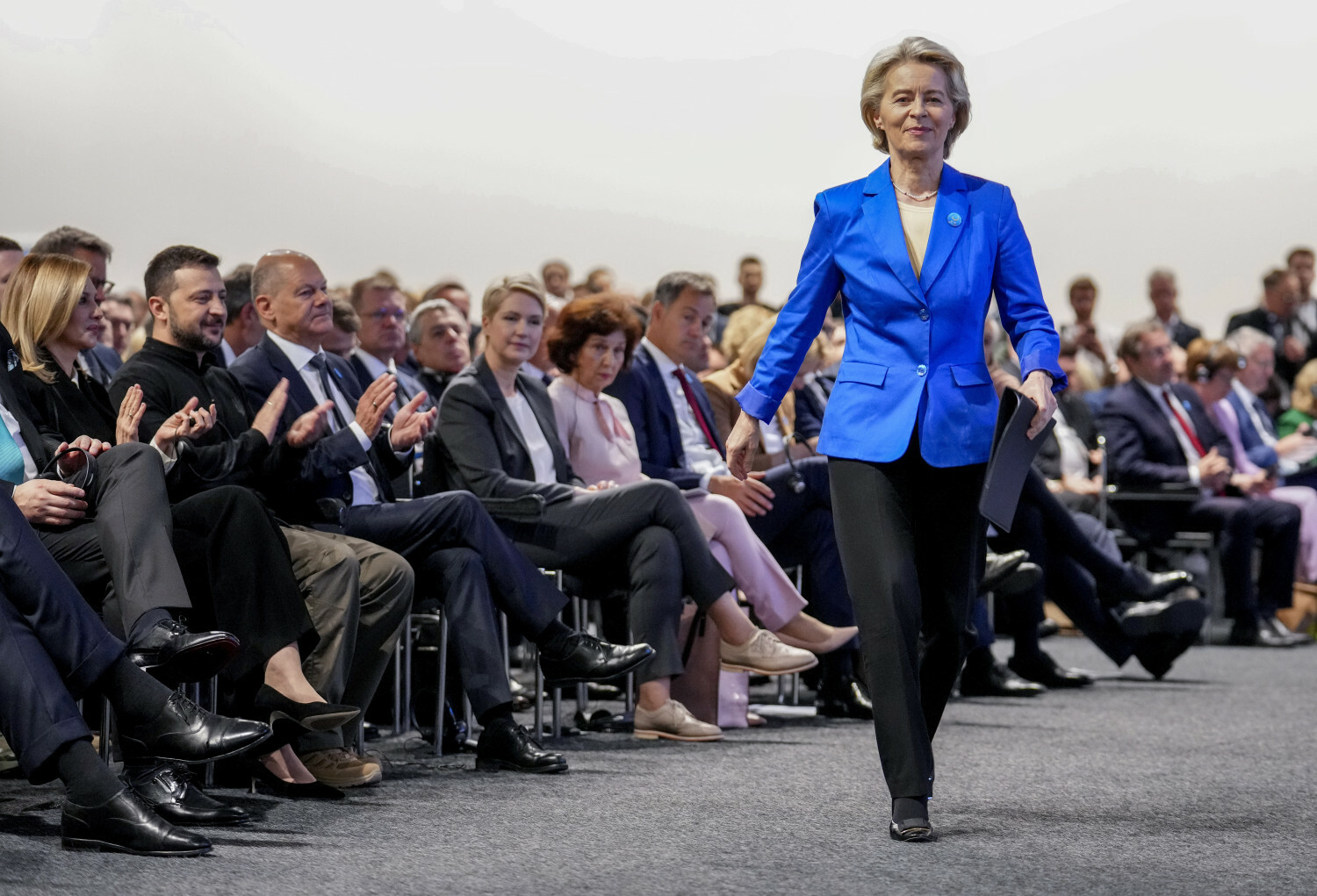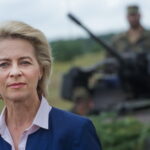Ursula von der Leyen has secured a second term as President of the European Commission. Von der Leyen outlined her program for the next five years, reaffirming support for Ukraine and plans to strengthen EU defense. Amidst the U.S. presidential elections and the war in Ukraine, von der Leyen spoke about enhancing internal security within the EU.
The European Parliament has confirmed Ursula von der Leyen for a second term as President of the European Commission. She will now form the new European Commission. What program has von der Leyen presented for the next five years, and will the EU’s support for Ukraine change? Read more in the article below.
Ursula von der Leyen Re-elected as President of the European Commission
Ursula von der Leyen first became President of the European Commission in 2019, even though she was not an official candidate for the position.
In the history of the European Union, von der Leyen became the first woman to head the EU’s executive body. Her name was proposed for the position by French President Emmanuel Macron. This time, the President of the European Commission could not bypass the official Spitzenkandidaten procedure, during which European political parties nominate their candidate. Von der Leyen became the candidate from the largest political group in the European Parliament, the “European People’s Party,” known for its strong pro-Ukrainian stance.
To be re-elected as President of the European Commission, she needed at least 361 out of 720 MEPs to vote for her. After weeks of long negotiations, von der Leyen managed to secure the support of 401 MEPs, despite rumors that she might not garner the necessary votes. This time, she avoided the scenario of the 2019 vote, where she received only eight votes more than the minimum required.
“This sends a powerful signal of trust. I think it also recognizes the hard work we have done together over the past five years. During the last mandate, we spared no effort. We faced the most turbulent times our union has ever encountered, and we stayed the course towards our long-term European goals,” said von der Leyen.
The President of the European Commission plays a decisive role in the decision-making process regarding EU policy. Amanda Paul, an analyst at the European Policy Centre in Brussels, says that Ursula von der Leyen has the power to exert significant pressure on various political groups in the European Parliament and member states within the EU.
Amanda Paul assesses Ursula von der Leyen’s first term as “more or less positive” and notes that von der Leyen was very determined at times. However, she managed to overcome the COVID crisis and the beginning of the full-scale war in Ukraine. The analyst believes that in her second term, von der Leyen will face enormous challenges: the continuation of the war in Ukraine, potential changes in political leadership in the U.S., and strengthening European security.
“Therefore, the main question on the agenda will be how to find a way for EU member states to be on the same page regarding the commitments they are ready to make to increase their defense and military-industrial base, to make a greater contribution to their own security and defense,” von der Leyen said.
Five-Year Plan: Helping Ukraine Among Priorities
Before the secret vote, the incumbent President of the European Commission spent nearly an hour presenting her political program to the newly elected European Parliament. The presentation was crucial for those who were still undecided about supporting von der Leyen with their vote. In her program, the candidate tried to satisfy the majority of the European Parliament:
- Defense and strengthening of the European Union, as demanded by her political group EPP;
- Continuation of the “Green Deal,” which is extremely important for the Greens;
- She also advanced important proposals for social democrats and liberals, such as ensuring equality and improving living standards, particularly providing affordable living.
In her program, von der Leyen emphasized that support for Ukraine would remain one of the priorities of the newly convened European Commission. During her speech, she criticized Hungarian Prime Minister Viktor Orbán for his visit to Moscow, after which the Russian army targeted the “Okhmatdyt” children’s hospital in Kyiv.
“Just two days later, Putin’s planes targeted their missiles at a children’s hospital and maternity ward in Kyiv. We all saw images of children covered in blood. We saw mothers trying to take small cancer patients to a safe place,” said von der Leyen from the podium, followed by a storm of applause.
The strike on the children’s hospital was called a “horrific message from the Kremlin” by the President of the European Commission. She stated that Europe must provide a clear response to Moscow and emphasized that the EU would stand with Ukraine for as long as necessary.
“We must give Ukraine everything it needs to resist and win,” von der Leyen said, announcing her political plan for the next five years.
The Importance of EU Enlargement and Internal Security
Von der Leyen believes that after the accession of new countries to the European bloc, the European Union will become a stronger geopolitical player. However, the enlargement process will continue to be merit-based. For the new European Commission, the accession of new countries to the EU will remain a priority. The President of the European Commission called to respond to the call of history and support the Western Balkans, Ukraine, Moldova, and Georgia, who are paying a high price for choosing democracy.
“We will support candidates by working on investments and reforms and integrating them, where possible, into our legal frameworks,” von der Leyen stated.
Among her plans, von der Leyen mentioned strengthening internal security within the EU amidst the U.S. presidential elections and the full-scale invasion of Russia into Ukraine. The security of EU member states will continue to be under the control of national governments, with collective defense provided by NATO.
However, von der Leyen proposes creating a single defense market in the EU to reduce dependence on arms procurement from third countries. She also calls for developing joint European projects, including building a common European air defense shield.
Impact of Changes in EU Leadership on Support for Ukraine
Amanda Paul believes that re-election of Ursula von der Leyen for a second term is very important for Ukraine.
“She has been a very strong supporter of Ukraine since the first day of Russia’s full-scale invasion. Ursula von der Leyen was very clear in her messages about why the EU must support Ukraine. She asked for military aid, humanitarian aid, and to make every effort for Ukraine,” Amanda Paul said.
During von der Leyen’s first term, Ukraine received candidate status for EU membership and has already opened negotiations. Additionally, after the European Commission’s proposals, the EU Council introduced 14 packages of sanctions against Russia. The European Commission has repeatedly put forward pro-Ukrainian initiatives, including the transfer of proceeds from frozen assets to aid Ukraine. It was also the European Commission that proposed granting and extending temporary protection for Ukrainian refugees in the EU.
An important factor for Ukraine will also be who gets the positions of EU commissioners. Ursula von der Leyen has already stated that she will expect two candidates for the European Commission – a man and a woman – from national governments. The head of the EU executive body will conduct interviews with them in mid-August.
It is expected that the role of the EU’s chief diplomat will go to the pro-Ukrainian former Prime Minister of Estonia, Kaja Kallas. It is still unknown who will hold other important positions of EU commissioners: for the internal market, agricultural policy, neighborhood, and enlargement. After the candidacies are agreed upon, they still need to be approved by the European Parliament after hearings this fall.

